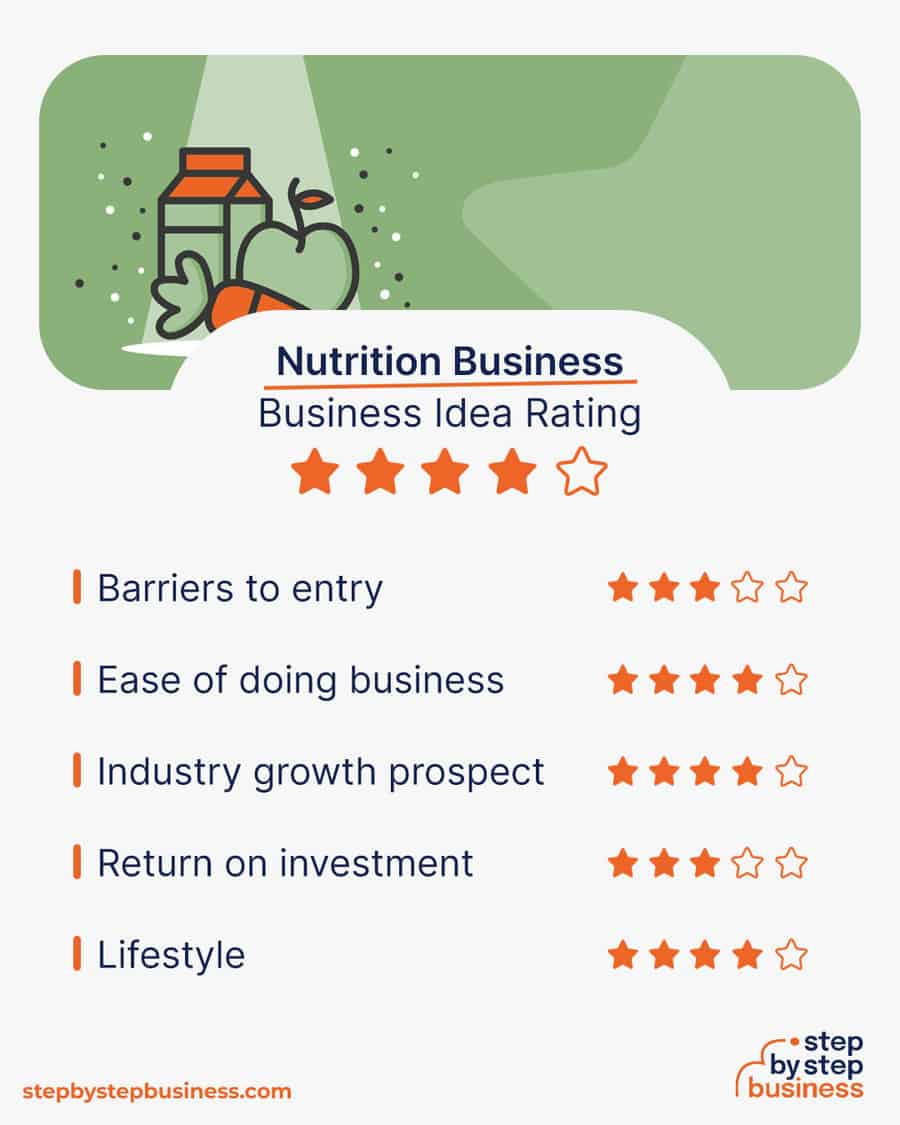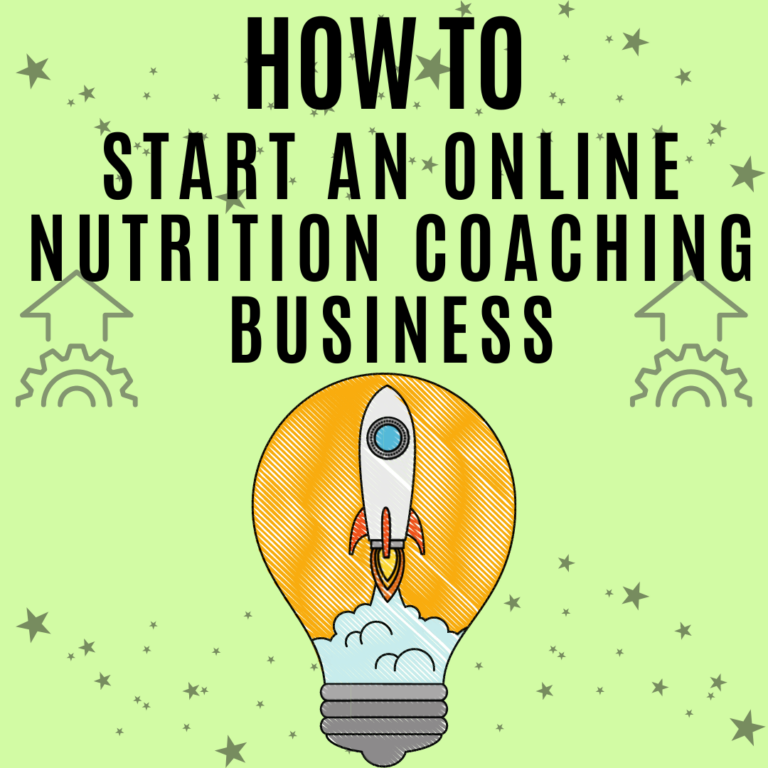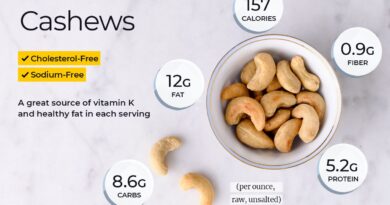How to Start a Nutrition Business: Ultimate Guide for Success
Starting a nutrition business can be a rewarding venture. It blends passion for health with entrepreneurial spirit.
But how do you begin? Starting a nutrition business requires careful planning and clear steps. First, understand the market and your potential clients. Research is key. You need to identify what niche you’ll serve. Will you focus on weight loss, sports nutrition, or general wellness?
Each niche has different needs. Next, develop a solid business plan. This plan should cover your goals, services, and financial projections. It will guide your journey and attract investors. Then, consider certifications. Having a credible background boosts client trust. Marketing is also crucial. A strong online presence helps reach more people. Finally, remember that dedication and persistence are essential. They turn dreams into reality. Ready to dive in? Let’s explore each step in detail.
Finding Your Niche
Starting a nutrition business can be rewarding and profitable. One crucial step is finding your niche. A niche helps you focus your efforts and stand out. It involves identifying your specific area of expertise and the audience you want to serve. This approach helps you tailor your services and marketing strategies effectively.
Identifying Target Audience
To succeed, identify your target audience. Knowing who you want to help makes a big difference. Focus on their needs and preferences. This helps you create relevant services and content. Start by considering different groups of people. Think about:
- Age groups: Children, teenagers, adults, seniors.
- Gender: Male, female, non-binary.
- Lifestyle: Athletes, busy professionals, stay-at-home parents.
- Health conditions: Diabetes, heart disease, allergies.
Next, research their problems and goals. Use surveys, interviews, or online forums. Ask questions like:
- What are their main health concerns?
- What nutrition advice are they seeking?
- What kind of support do they need?
Analyze your findings. Look for common themes and patterns. This helps you understand your audience better. Here’s a table to summarize:
| Group | Common Needs | Preferred Services |
|---|---|---|
| Children | Balanced diet, growth support | Meal planning, parental guidance |
| Busy Professionals | Quick meals, energy boost | Meal prep, on-the-go options |
| People with Diabetes | Blood sugar control | Low-carb recipes, dietary plans |
Understanding your audience is the first step to success. Tailor your services to meet their needs.
Specializing In Services
Once you know your audience, specialize in services. Specialization sets you apart. Clients trust specialists more than generalists. Consider offering unique services. Think about:
- Personalized meal plans
- Nutrition counseling
- Workshops and classes
- Online consultations
Focus on your strengths and passions. Choose services you enjoy providing. This ensures quality and consistency. Here are some specialization examples:
| Specialization | Service Examples |
|---|---|
| Sports Nutrition | Performance diets, recovery meals |
| Weight Management | Weight loss programs, healthy eating habits |
| Plant-based Diets | Vegan meal plans, plant-based cooking classes |
Specializing helps you build expertise. It also makes marketing easier. Clients will recognize your expertise and seek your services. Offer high-quality, specialized services. This creates loyal clients and positive word-of-mouth. It also helps you grow your nutrition business effectively.

Creating A Business Plan
Starting a nutrition business is an exciting venture that combines your passion for health with entrepreneurial spirit. One of the crucial steps in this journey is creating a business plan. A solid business plan acts as a roadmap, guiding you through the initial setup and future growth of your business. It helps you stay focused, organized, and prepared for any challenges that may arise.
Setting Goals
Setting clear and achievable goals is the first step in creating a business plan. Your goals will provide direction and help you measure progress. Here are some steps to help you set effective goals:
- Identify your mission: What is the core purpose of your nutrition business? Define your mission statement clearly.
- Set short-term goals: These are goals you aim to achieve within the first year. Examples include gaining a certain number of clients or launching a specific product.
- Set long-term goals: These are goals you aim to achieve in three to five years. Examples include expanding to new locations or reaching a specific revenue target.
- SMART goals: Ensure your goals are Specific, Measurable, Achievable, Relevant, and Time-bound.
Using a table can help you organize your goals:
| Goal Type | Example | Time Frame |
|---|---|---|
| Short-term | Acquire 100 clients | Within 12 months |
| Long-term | Open a second location | Within 3 years |
Setting goals gives you a clear vision of what you want to achieve and helps you stay focused on your objectives.
Budgeting And Funding
Budgeting and securing funding are critical aspects of your business plan. Proper budgeting ensures that you have enough resources to operate and grow your business. Here are key steps to consider:
- Estimate startup costs: List all the expenses you will incur before launching your business. This includes equipment, inventory, marketing, and legal fees.
- Monthly operating costs: Calculate your ongoing expenses such as rent, utilities, salaries, and supplies.
- Revenue projections: Estimate how much income you expect to generate each month. Consider different revenue streams such as product sales, consultations, and workshops.
- Funding sources: Identify where you will get the money to start and run your business. Possible sources include personal savings, bank loans, investors, and crowdfunding.
Here is an example of a basic budget table:
| Expense Type | Estimated Cost |
|---|---|
| Equipment | $5,000 |
| Inventory | $3,000 |
| Marketing | $2,000 |
| Legal Fees | $1,000 |
Creating a detailed budget helps you understand your financial needs and manage your resources wisely. Securing the necessary funding ensures you can cover your initial costs and sustain your business in the long run.
Legal Requirements
Starting a nutrition business can be a rewarding venture. It is important to understand the legal requirements. These requirements ensure your business operates within the law. They also help build trust with your clients. Let’s explore the legal aspects you need to consider.
Licensing And Certifications
To start a nutrition business, you need proper licensing and certifications. These credentials prove your expertise and legitimacy. Different regions have varying requirements. Here are some common steps:
- Certified Nutrition Specialist (CNS) – This certification is often required. It involves completing a master’s degree in nutrition and passing an exam.
- Registered Dietitian Nutritionist (RDN) – This is another recognized certification. It requires a bachelor’s degree, supervised practice, and passing a national exam.
- State Licensure – Some states require you to have a specific license to practice. Check your local regulations.
These certifications ensure you have the knowledge to provide accurate nutrition advice. They also protect you from legal issues. Below is a table of some certifications and their requirements:
| Certification | Education Requirement | Exam Requirement |
|---|---|---|
| CNS | Master’s Degree | Yes |
| RDN | Bachelor’s Degree | Yes |
Business Structure Choices
Choosing the right business structure is crucial. It affects your taxes, liability, and operations. Here are some common structures:
- Sole Proprietorship – Simple to set up. You and the business are the same entity. You are personally liable for any debts.
- Limited Liability Company (LLC) – Offers protection for your personal assets. More paperwork than a sole proprietorship. You are not personally liable for business debts.
- Corporation – More complex structure. Separate legal entity from the owner. Owners are shareholders and not personally liable for business debts.
Each structure has its pros and cons. Consider factors like tax implications, personal liability, and your long-term business goals. Below is a comparison table for quick reference:
| Structure | Personal Liability | Tax Complexity |
|---|---|---|
| Sole Proprietorship | High | Low |
| LLC | Low | Medium |
| Corporation | None | High |
Choosing the right structure helps your business run smoothly. It protects you from potential legal and financial issues. Evaluate your options carefully.

Building Your Brand
Starting a nutrition business can be both exciting and challenging. One of the first and most important steps is building your brand. Your brand sets the tone for your business and helps you connect with your target audience. A strong brand can make your business stand out in a competitive market. Here are some key aspects to consider when building your brand.
Choosing A Business Name
Choosing the right name for your nutrition business is crucial. Your business name should be memorable, easy to pronounce, and reflect what your business is about. Here are some tips to help you choose the perfect name:
- Keep it simple: A simple name is easier to remember and spell.
- Reflect your brand: Choose a name that represents your business values and services.
- Check availability: Ensure the name is not already taken. Check domain names and social media handles.
- Think long-term: Choose a name that will still be relevant as your business grows.
Here is a table to help you brainstorm potential business names:
| Potential Name | Meaning | Availability |
|---|---|---|
| Health Haven | A place for health and wellness | Available |
| NutriLife | Nutrition for a better life | Available |
| FitFuel | Fuel for a fit lifestyle | Unavailable |
Designing A Logo
Your logo is an essential part of your brand identity. It should be unique and easily recognizable. Here are some tips for designing a great logo:
- Simplicity: A simple logo is more versatile and easier to reproduce across different mediums.
- Color Scheme: Choose colors that reflect your brand’s personality. For a nutrition business, colors like green, blue, and orange are popular.
- Typography: Use fonts that are easy to read and match your brand style.
- Scalability: Ensure your logo looks good at any size, from business cards to billboards.
Here is a step-by-step process to create your logo:
- Research: Look at logos from similar businesses for inspiration.
- Sketch Ideas: Draw several rough sketches of potential logos.
- Design Digitally: Use design software like Adobe Illustrator or Canva to create digital versions.
- Get Feedback: Show your designs to friends, family, and potential customers for feedback.
- Finalize: Choose the best design and make any necessary adjustments.
Remember, your logo will be a key part of your brand identity. Take your time to create something that represents your business well.
Setting Up Online Presence
Starting a nutrition business is an exciting journey. In today’s digital age, having a strong online presence is crucial. This helps you reach a larger audience, build credibility, and grow your business. Setting up your online presence involves creating a professional website and actively using social media platforms.
Creating A Website
Creating a website is the first step in establishing your online presence. Your website serves as the face of your nutrition business on the internet. It should be professional, user-friendly, and informative. Here are some key points to consider:
- Choose a Domain Name: Pick a domain name that is easy to remember and reflects your brand.
- Select a Hosting Provider: Choose a reliable hosting provider to ensure your website is always accessible.
- Design and Layout: Use a clean, simple design that makes it easy for visitors to navigate.
- Content: Include information about your services, your qualifications, and contact details.
- SEO Optimization: Use relevant keywords to improve your website’s search engine ranking.
Here is a simple table to help you understand the basic components of a good website:
| Component | Description |
|---|---|
| Home Page | Introduction to your business and services |
| About Page | Your qualifications and experience |
| Services Page | Detailed description of your nutrition services |
| Contact Page | How clients can reach you |
Utilizing Social Media
Social media is a powerful tool for promoting your nutrition business. It allows you to connect with potential clients, share valuable content, and build a community. Here’s how to make the most of social media:
- Choose the Right Platforms: Focus on platforms like Facebook, Instagram, and LinkedIn where your target audience is active.
- Create Engaging Content: Share tips, recipes, client testimonials, and success stories.
- Consistency: Post regularly to keep your audience engaged. Create a content calendar to plan your posts.
- Interact with Followers: Respond to comments and messages promptly. Build relationships with your audience.
- Collaborate with Influencers: Partner with influencers in the nutrition industry to reach a larger audience.
Here are some types of content that work well on social media:
- Short videos demonstrating healthy recipes
- Before-and-after photos of clients
- Informative posts about nutrition tips
- Live Q&A sessions
- Polls and surveys to engage your audience
By effectively utilizing social media, you can significantly increase your reach and grow your nutrition business. Engage with your audience, provide value, and watch your online community thrive.
Marketing Strategies
Starting a nutrition business is an exciting journey. It involves many steps, but one of the most important is developing effective marketing strategies. These strategies help attract clients and build your brand. Below, we’ll explore two key marketing strategies: Content Marketing and Networking Opportunities.
Content Marketing
Content marketing is vital for your nutrition business. It involves creating and sharing valuable content. This can attract and engage your target audience. Here are some steps to get started:
- Identify Your Audience: Know who you are speaking to. Understand their needs, problems, and interests.
- Create Valuable Content: Provide information that helps your audience. This could be blog posts, videos, or infographics.
- Use Keywords: Research and use relevant keywords. This helps your content rank higher on search engines.
- Be Consistent: Regularly update your content. This keeps your audience engaged and returning for more.
Consider the types of content you can create:
| Content Type | Description |
|---|---|
| Blog Posts | Write articles on nutrition tips, healthy recipes, and wellness advice. |
| Videos | Create tutorials, client success stories, or Q&A sessions. |
| Infographics | Use visuals to explain complex nutrition information. |
Remember, the goal is to educate and inspire your audience. This builds trust and establishes you as an expert in your field.
Networking Opportunities
Networking is another powerful strategy. It helps you connect with potential clients and other professionals. Here are some ways to network effectively:
- Attend Events: Participate in nutrition and wellness events. This includes seminars, workshops, and conferences.
- Join Professional Groups: Become a member of nutrition-related associations. Engage in discussions and share your expertise.
- Collaborate with Others: Partner with gyms, wellness centers, or health food stores. This can expand your reach.
- Use Social Media: Engage with your audience on platforms like Facebook, Instagram, and LinkedIn. Share your knowledge and connect with others in your field.
Networking can also involve:
- Online Forums: Participate in online communities related to nutrition. Answer questions and offer advice. <li
- Local Meetups: Organize or attend local meetups. These can be great for forming personal connections.
Building a strong network takes time. Focus on creating genuine relationships. This can lead to referrals, collaborations, and new clients.
Client Engagement
Starting a nutrition business involves more than just having the right knowledge about food and diet. Client engagement is crucial for your success. Engaged clients are more likely to stick to their nutrition plans and recommend your services to others. Below are some effective strategies for engaging your clients.
Offering Consultations
Offering consultations is a great way to start building a relationship with your clients. During these sessions, you can understand their needs, preferences, and goals. Here are some tips to make your consultations effective:
- Initial Assessment: Conduct a thorough assessment of the client’s health and dietary habits. This will help you create a personalized nutrition plan.
- Active Listening: Pay close attention to what your clients are saying. This shows that you care and helps you gather important information.
- Set Clear Goals: Work with your clients to set achievable goals. This gives them something to strive for and keeps them motivated.
- Follow-Up Sessions: Schedule regular follow-up sessions to track progress and make necessary adjustments to their plans.
Here is a sample structure for a consultation session:
| Time | Activity |
|---|---|
| 0-10 mins | Introduction and rapport building |
| 10-30 mins | Health and dietary assessment |
| 30-50 mins | Goal setting and planning |
| 50-60 mins | Summary and next steps |
Developing Client Programs
Developing client programs that are tailored to individual needs can significantly boost client engagement. Personalized programs show that you care about their specific needs. Here’s how to develop effective client programs:
- Customization: Each client is different. Customize their nutrition plans based on their health status, lifestyle, and goals.
- Variety: Include a variety of foods in their diet plans to keep things interesting. This helps in maintaining their interest and compliance.
- Educational Resources: Provide clients with educational materials. This can include articles, recipes, and tips on healthy eating.
- Regular Feedback: Ask for regular feedback from your clients. This helps you to make necessary adjustments and improve their experience.
A sample client program might look like this: Add more rows as needed
| Day | Meal Plan | Exercise Plan |
|---|---|---|
| Monday | Breakfast: Oatmeal with fruits Lunch: Grilled chicken salad Dinner: Steamed fish with veggies | 30 mins walk |
| Tuesday | Breakfast: Yogurt with granola Lunch: Turkey sandwich Dinner: Stir-fried tofu with rice | Yoga session |
| Wednesday | Breakfast: Smoothie Lunch: Quinoa salad Dinner: Lentil soup | 30 mins cycling |
Engaging your clients effectively through personalized consultations and tailored programs can lead to better results and higher satisfaction. This will not only help your clients but also contribute to the growth of your nutrition business.

Measuring Success
Starting a nutrition business is an exciting venture. It involves helping people improve their health through better eating habits. But like any business, you need to know if you are on the right track. Measuring success is key. It helps you see what is working and what needs change. This guide will show you how to track your progress and adjust your strategies.
Tracking Progress
Tracking progress is essential to understand how your nutrition business is performing. It involves looking at different metrics and indicators. Here are some key areas to focus on:
- Client Numbers: Keep an eye on how many clients you have. Are you gaining new clients every month?
- Client Retention: Are your clients coming back? High retention rates mean clients are satisfied with your service.
- Revenue: Track your monthly and yearly revenue. Compare it with your goals.
- Client Feedback: Collect feedback from your clients. Use surveys or direct conversations.
It can be helpful to use a table to keep track of these metrics:
| Metric | Current Month | Previous Month | Goal |
|---|---|---|---|
| Client Numbers | 50 | 45 | 60 |
| Client Retention | 90% | 85% | 95% |
| Revenue | $5,000 | $4,500 | $6,000 |
| Client Feedback | 4.5/5 | 4.2/5 | 4.8/5 |
Regularly reviewing these metrics will help you understand your business’s health. It also shows where you need to make changes.
Adjusting Strategies
Once you have tracked your progress, it is time to adjust your strategies. This step ensures continuous improvement. Here are some tips to help you adjust your strategies:
- Analyze Data: Look at the data you have collected. Identify areas where you are falling short.
- Set New Goals: Based on your analysis, set new, realistic goals. Ensure they are specific and measurable.
- Implement Changes: Make necessary changes to your services or marketing strategies. This could include offering new services or improving client communication.
For example, if client feedback indicates they want more personalized plans, consider offering custom meal plans. If revenue is not meeting your goals, look at your pricing structure. Maybe you need to adjust your rates or offer packages. Here is a simple table to help you plan your strategy adjustments:
| Area | Current Status | New Goal | Action Plan |
|---|---|---|---|
| Client Numbers | 50 | 60 | Increase marketing efforts |
| Client Retention | 90% | 95% | Enhance client follow-up |
| Revenue | $5,000 | $6,000 | Review pricing structure |
| Client Feedback | 4.5/5 | 4.8/5 | Offer personalized plans |
Making these adjustments will help you meet your goals and grow your business. Always keep an eye on your metrics. This way, you can make timely changes.
Frequently Asked Questions
What Are The First Steps To Start A Nutrition Business?
Begin by researching the market and identifying your niche. Create a comprehensive business plan. Obtain necessary certifications and licenses.
How Much Does It Cost To Start A Nutrition Business?
The cost varies, typically ranging from $2,000 to $10,000. This includes certifications, marketing, and initial inventory.
Do I Need A Certification To Start A Nutrition Business?
Yes, obtaining a certification enhances credibility. Consider certifications from accredited institutions like NASM or ISSA.
How Do I Market My Nutrition Business Effectively?
Utilize social media platforms, create valuable content, and engage with your audience. Consider email marketing and partnerships.
Conclusion
Starting a nutrition business can be very rewarding. Follow the steps outlined. Focus on your goals and stay committed. Research the market and understand your audience. Build a strong brand and online presence. Offer quality products and services. Your hard work will pay off.
Keep learning and adapting to changes. Success comes with patience and dedication. Stay passionate about helping others live healthier lives. Your nutrition business can thrive with the right approach.




